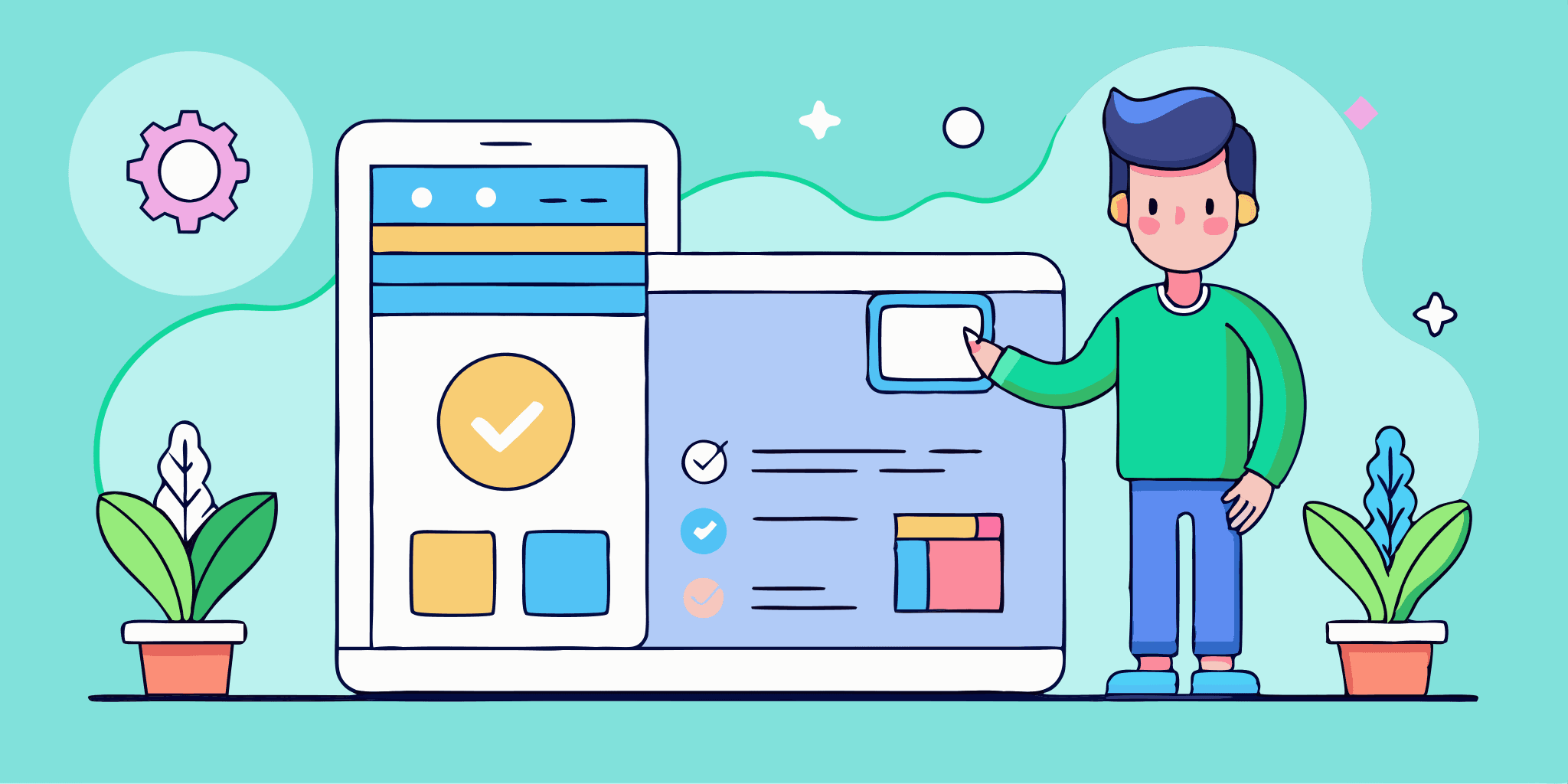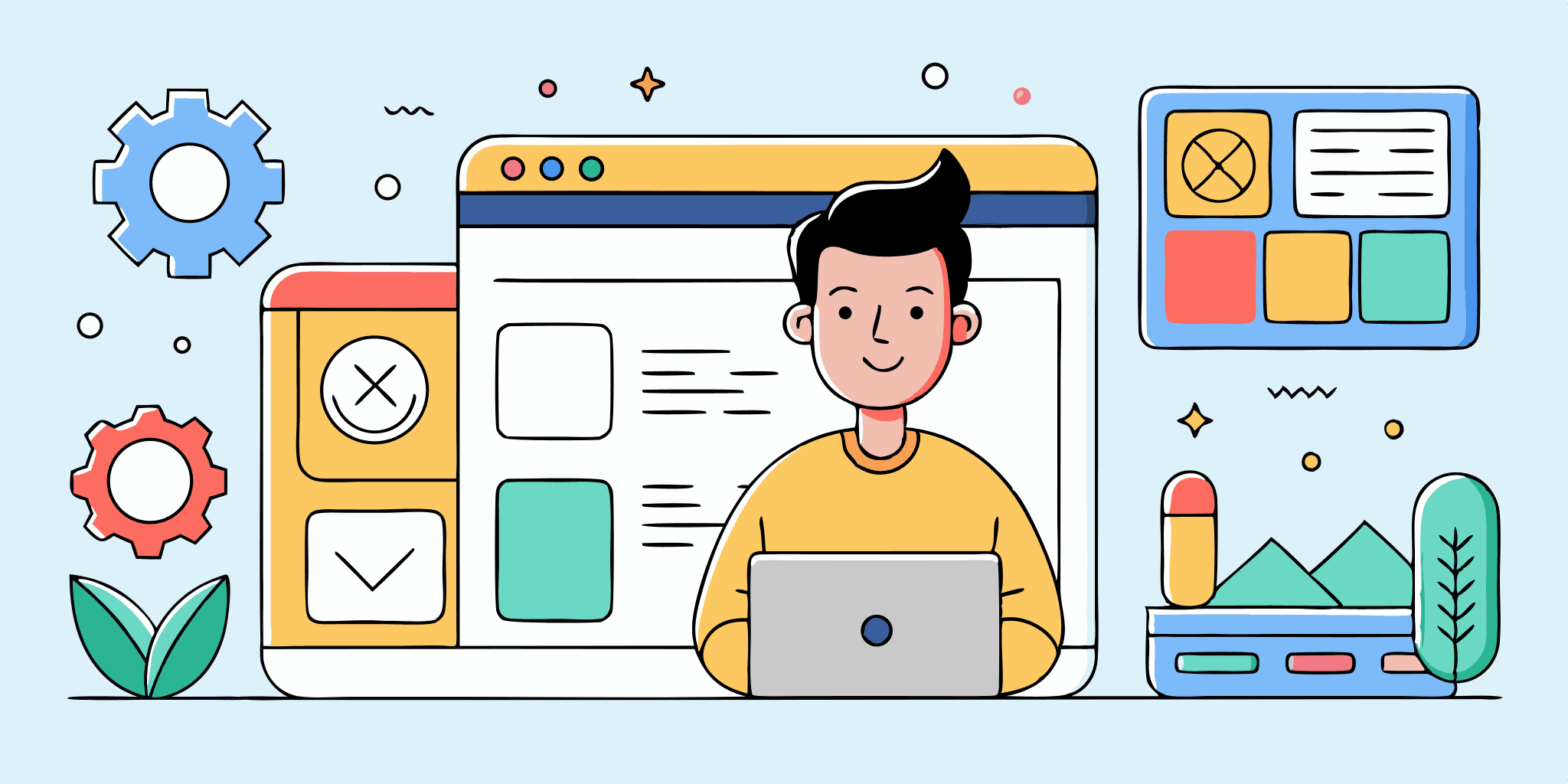

UI/UX Design
UI/UX Design: Crafting Digital Experiences
In the digital-first world of today, design is more than simply how something appears; it’s also how it functions. UI/UX design determines how easy (or difficult) it is for you to browse through apps, purchase online, or make travel arrangements.
What Is UX Design?
UX (User Experience) design is all about how users feel when interacting with a product or service. It’s about the journey—from the moment someone lands on your website or opens your app to when they complete a task.
UX designers focus on:
-
User research: Who are the users? What do they need?
-
User flows: How do people navigate through your product?
-
Wireframes: Basic sketches of layouts and user paths
-
Prototyping: Testing ideas before they’re built
-
Usability: Is it easy, intuitive, and enjoyable?
What Is UI Design?
UI (User Interface) design is about the look and feel of the product. It’s the design of the screens, buttons, icons, typography, color schemes, and overall visual style that users interact with.
UI designers focus on:
-
Visual design: Creating attractive, brand-aligned aesthetics
-
Typography and color: Making text readable and consistent
-
Responsiveness: Ensuring it works across all devices
-
Design systems: Keeping the product cohesive
-
Accessibility: Designing for all users, including those with disabilities
Why UI/UX Design Matters
First impressions happen in milliseconds, and users are quick to abandon apps or sites that feel confusing or clunky. Good UI/UX design can:
- Boost user satisfaction
- Increase engagement and retention
- Reduce development costs (by catching issues early)
- Improve conversion rates
- Strengthen brand loyalty
Whether you’re building a billion-dollar app or a personal blog, design can make or break your success.
Real-World Example
Think of your favorite app. Why do you love using it?
Maybe it’s:
-
Easy to find what you need (UX)
-
Looks clean and modern (UI)
-
Feels fast and intuitive (UX)
-
Uses pleasing colors and smooth animations (UI)
That’s the power of great design at work.
How UI and UX Work Together
UI and UX are two sides of the same coin. You can’t have one without the other.
-
A beautiful app (UI) with confusing navigation (poor UX) will frustrate users.
-
A well-thought-out app with a clunky interface won’t get much love either.
The best products are built when UI and UX work together seamlessly.
Tools of the Trade
Here are some of the popular tools UI/UX designers use:
-
Figma (design & prototyping)
-
Adobe XD (UI/UX design)
-
Sketch (interface design)
-
InVision (prototyping & collaboration)
-
Miro (brainstorming & user flows)
-
Notion / Trello (workflow & project management)
UI/UX Design Process
Here’s a simplified design workflow:
-
Research – Understand users, goals, and problems.
-
Define – Identify key features and structure.
-
Sketch & Wireframe – Create blueprints of screens.
-
Design UI – Apply visual styles, branding, and layout.
-
Prototype – Make an interactive model.
-
Test & Iterate – Get feedback and improve.
-
Handoff to Developers – Collaborate for final implementation.
Current UI/UX Trends
-
Dark mode and high-contrast design
-
Microinteractions (tiny animations that delight)
-
AI-assisted personalization
-
Neumorphism & Glassmorphism (stylized visual effects)
-
Voice & gesture interfaces
-
Inclusive design for accessibility
UI/UX design is about empathy and problem-solving. It’s not just for designers—it’s for anyone building digital experiences, from product managers to developers to entrepreneurs.
When you design with the user in mind, you create products that people love, recommend, and keep coming back to.


FAQ
Aksked & Question
The specific goals of a marketing agency can vary
depending on the client's needs, industry.
1. What services does your agency offer?
Provide an overview of the primary digital services your agency specializes in, such as digital marketing, web development, design, etc. Feel free to customize these based on the specific services, policies, and practices.
2. What industries does your agency work with?
Provide an overview of the primary digital services your agency specializes in, such as digital marketing, web development, design, etc. Feel free to customize these based on the specific services, policies, and practices.
3. What sets your agency apart from others in the industry?
Provide an overview of the primary digital services your agency specializes in, such as digital marketing, web development, design, etc. Feel free to customize these based on the specific services, policies, and practices.
4. What is your pricing structure or payment process?
Provide an overview of the primary digital services your agency specializes in, such as digital marketing, web development, design, etc. Feel free to customize these based on the specific services, policies, and practices.
Let’s TALK
Crafting a contact text for a digital agency involvesproviding esential information for potential clients or collaborators to reach out.
Connect Us
Contact Now
Welcome to InnovateTech Solutions
EMAIL MARKETING
DIGITAL STUDIO
UI/UX DESIGN
EMAIL MARKETING
UI/UX DESIGN
Welcome to InnovateTech Solutions
EMAIL MARKETING
DIGITAL STUDIO
UI/UX DESIGN
EMAIL MARKETING
UI/UX DESIGN

